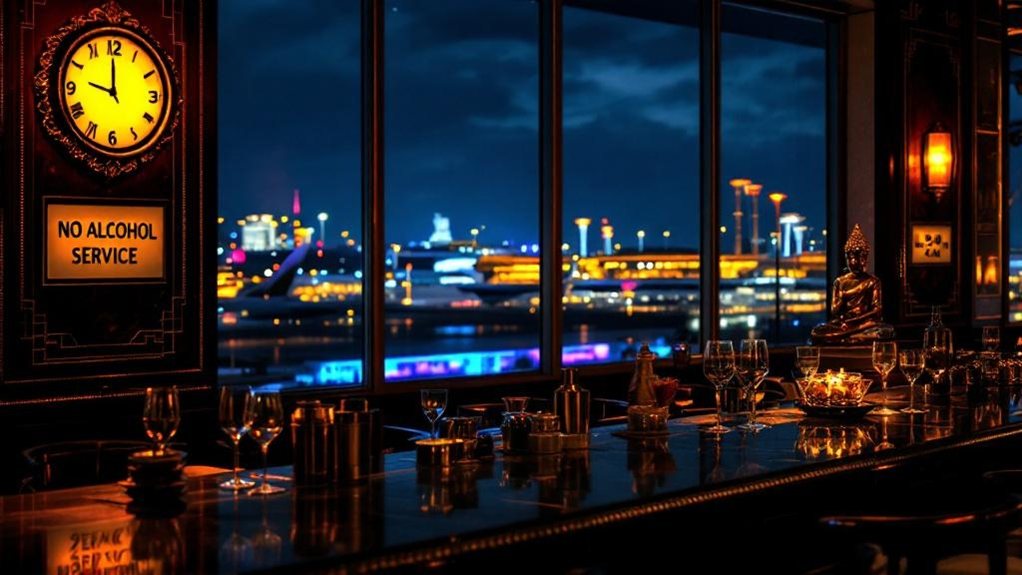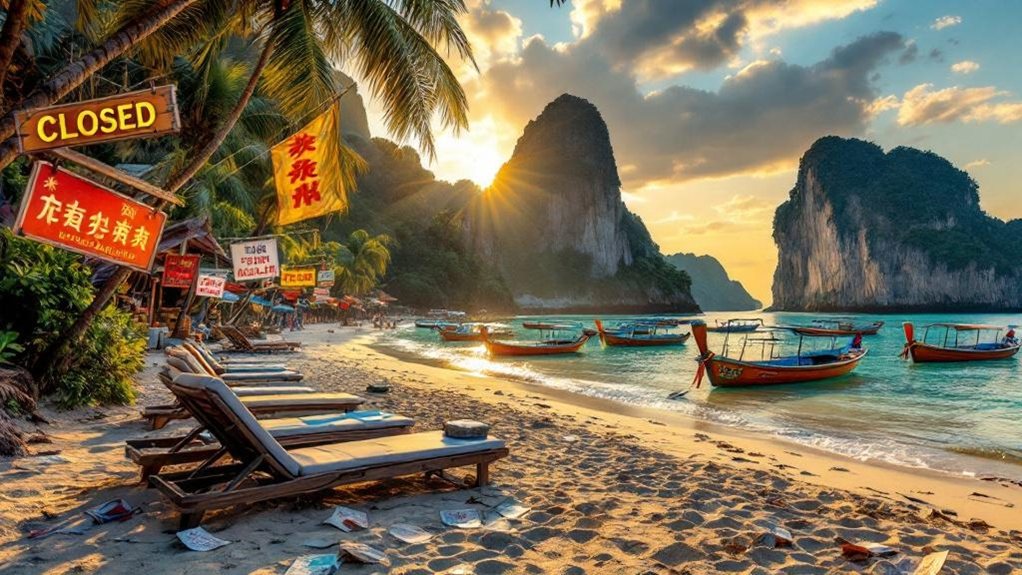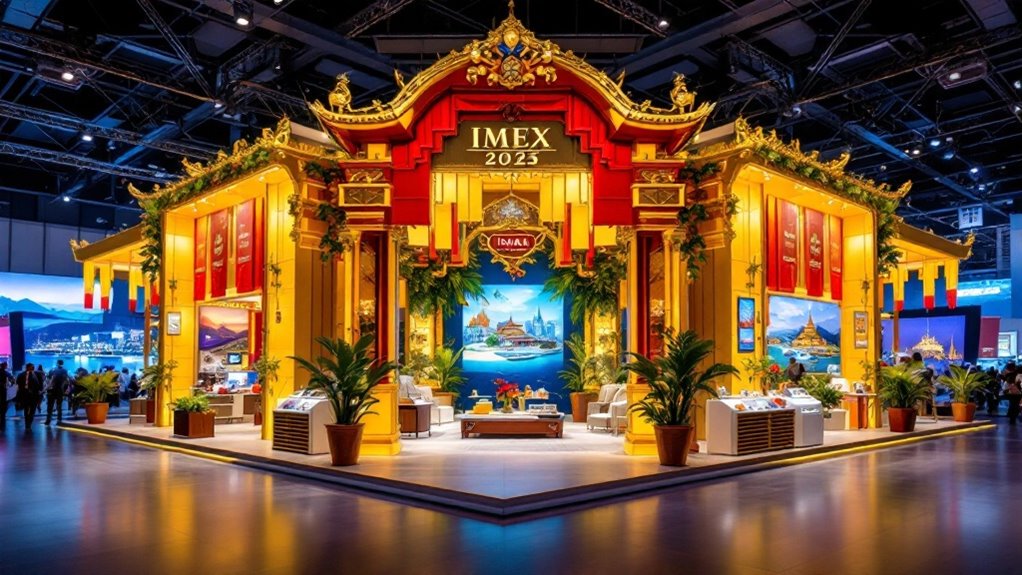Thailand’s new alcohol regulations, effective June 27, 2025, allow 24-hour alcohol sales only at airports, hotels, and recognized entertainment venues, aligning with global hospitality standards to boost tourism. Sales are restricted elsewhere to designated hours, balancing modernization with cultural and safety concerns, especially within transit zones like railways. These changes integrate measures for youth protection and public order. More details on exemptions, compliance, and enforcement are available for those exploring further.
Following recent regulatory changes, Thailand has implemented new nationwide restrictions on alcohol sales, effective June 27, 2025, aiming to enhance public safety and order. The nation now enforces specific hours for alcohol sales, restricting them to 11:00–14:00 and 17:00–24:00 daily. Outside these hours, sales are prohibited, with limited exceptions.
Importantly, a complete ban on the sale and consumption of alcohol is enforced on railway premises, including stations and train carriages, except in a designated air-conditioned hall for special events at Bangkok Railway Station, Hua Lamphong. This measure is designed to maintain public order and enhance passenger safety, particularly in transit zones.
A total alcohol ban on railway premises ensures public order and passenger safety in transit zones.
Despite these restrictions, certain venues such as airports, hotels, and legally recognized entertainment establishments have been granted permission for 24-hour alcohol sales. This exemption aims to modernize Thailand’s hospitality services and attract high-value tourists by aligning with global standards. The change aligns with current economic and social realities, supporting Thailand’s tourism-driven economy and expanding service sector. However, outside these specified zones, the restricted sales hours remain in effect, underscoring the government’s efforts to regulate alcohol consumption and reduce alcohol-related harm, particularly among youth. The government’s focus on maintaining public safety and order is evident through the strict enforcement of these regulations.
The government’s decision also includes a partial lifting of the alcohol sales ban on five major Buddhist holy days starting May 10, 2025. Under strict conditions, limited alcohol sales are permitted in international airports, hotels, entertainment venues, and certain tourism-related establishments. This policy attempts to balance cultural respect for religious traditions with the economic benefits of increased tourism.
Despite these allowances, enforcement and clarity regarding approved locations remain concerns, with the list of compliant establishments yet to be fully disclosed before major holidays.
The Alcoholic Beverage Control Committee‘s recommendations reflect a broader campaign, “Amazing Thailand Grand Tourism and Sports Year 2025,” aiming to bolster tourism while maintaining public safety. Safety measures include screening customers, restricting sales to minors, and maintaining order at venues.
The complete ban on railway premises, supported by legal frameworks referencing railway and highway laws, emphasizes the government’s focus on minimizing alcohol-related harm in transit zones. While the public reaction is mixed, the policy changes highlight Thailand’s attempt to balance modernization with public safety and cultural norms.









